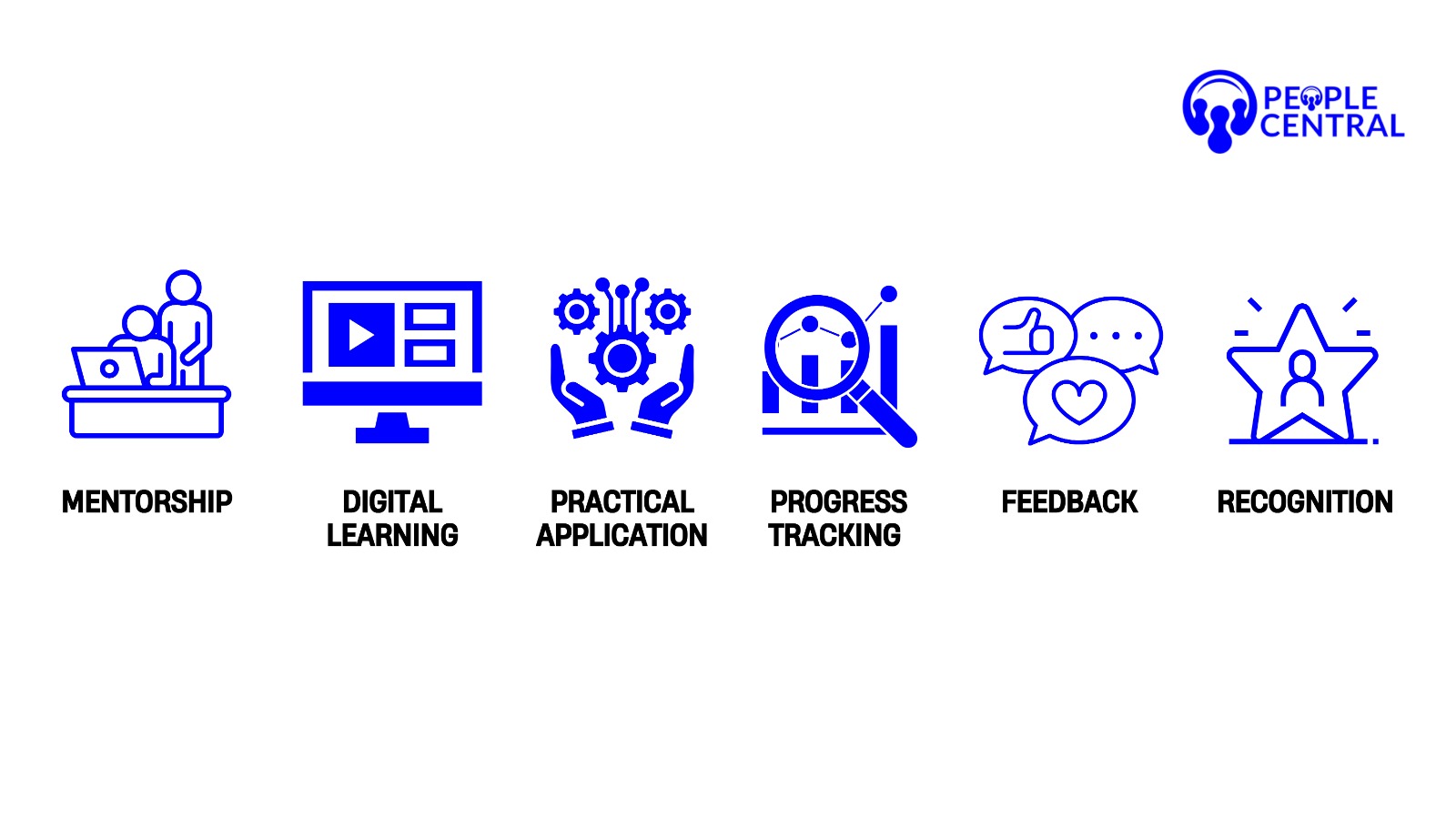With the dynamic evolving circumstances that characterize Singapore’s business environment, on-the-job training has become one of the basic approaches to employee development. Amid the competition in the global market, on-the-job training would serve to reinforce the significance of workplace learning.
On the Job Training in the Context of Singapore
According to the WSG, on-the-job training has become essential in Singapore’s National Skill Development Strategy. This mode of training dovetails pervasively with the pragmatic approach for which Singapore is noted, cultivating an attitude of continuous improvement.
On The Job Training: Key Benefits of Workplace Learning
Immediate Application of Knowledge
The Institute for Adult Learning Singapore asserts employees retain more than 75% when allowed to put into practice new knowledge directly. This will be facilitated by on-the-job training:
- Provides hands-on opportunity as work is performed
- Allows for instant feedback
- Provides contextual learning experiences
Cost-Effective Skill Development
Investigations of the Singapore National Employers Federation show structured on-the-job training programs benefit companies such as:
- 30% decrease in formal training costs
- 45% faster skills acquisition
- 25% gain in performance.
Also Read : Unlocking the Benefits of Shared Maternity Leave: A Comprehensive Guide
On The Job Training: Impact on Employee Performance
Enhanced Productivity
The research findings from the Ministry of Manpower suggested that employees following structured on-the-job training tended to conceptualize:
- More task completion
- Quality of work
- Time management skills
- Problems solving skill
- Increase in confidence and morale
Boosted Confidence:
The training itself naturally instills:
- Job confidence
- Team relationships
- Communication in the workplace
- Job satisfaction levels
Implementing Effective On the Job Training
Structured Approach
The Singapore Business Federation suggests:
- A clear set of learning objectives
- Gradual skill-building plans
- Regular progress evaluation
- Structured feedback mechanisms
Mentor-Mentee Relationships
Should encompass programs that are good at this:
- Assignment of experienced mentors
- Regular check-in sessions
- Hands-on demonstrations of skills
- Constructive feedback loops?
Also Read : IRAS Tax Filing Tips For Singapore 2025
On The Job Training: Best Practices for Singapore Organizations
Cultural Considerations
In Singapore’s multicultural workplace, successful training with effective programs should:
- Respect diverse learning styles
- Consider different language preferences
- Factor in cultural sensitivities
- Tipping towards inclusive learning
Technology Integration
Most modern on-the-job training involves:
- Digital learning tools
- Mobile learning platforms
- Virtual reality simulations
- Employee performance tracking software

Government Support and Initiatives
SkillsFuture Programs
SkillsFuture Singapore has:
- Training grants
- Expert support and consultation
- Resource support
- Best practices guidelines
Industry Collaboration
Successful programs often involve:
- Cross-industry partnerships
- Shared learning resources
- Industry mentorship programs
- Joint training initiatives.
Conclusion
On-Job training is still a relevant way for improving employee performance in Singapore, an extremely competitive environment for businesses. Embedded in structured programs comprising a combination of traditional mentorship and modern instructional technology, organizations in this sector would be able to develop an extremely well-trained labor force catering to the challenges coming in the foreseeable future.
Success in this regard must be approached with dedication, rigor from both management and the entire workforce, along with clear understanding of what are desired learning objectives and intended outcomes. If implemented with proper support, on-the-job training will augment performance at an operational level yielding organizational prosperity and sustainable growth.
Getting the programmes structured but flexible enough to allow customization while maintaining clearly defined learning objectives is the way to go here. As Singapore positions itself in establishing a global business hub, effective on-job training would increasingly contribute to workforce development and organizational success.








 5
5


























